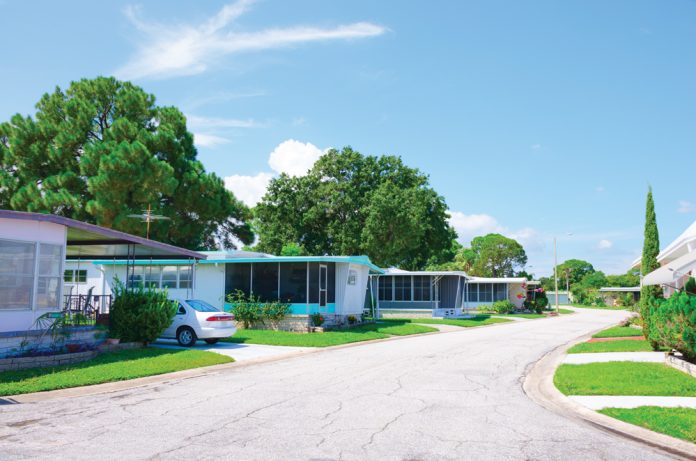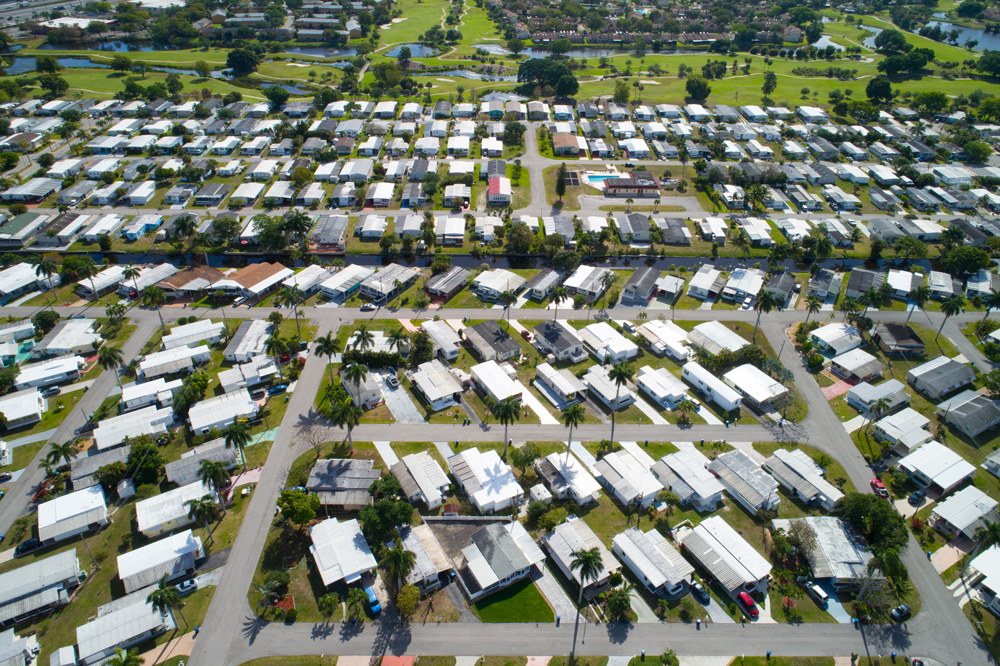New Tech Adds Efficiency, Savings for Water Utilities
Community owners and managers often ask the question, “Should we submeter our water services to the homes?” There has always been a great financial case to do so, and with new advancements in wireless communications and data analytics, the question has become: “How fast can we get our park submetered?”
A clear benefit to manufactured home community owners is to subdivide the increasingly large utility bill from their local water utility and distribute these costs to the people consuming the water. The return on investment here is generally less than one year, immediately improving the owner’s cash flow and increasing property value.
Technological advancements in meters and their reading systems now allow owners to:
- Pass on greater water costs due to improved accuracy of the meters.
- Improve customer service to their residents by automatically alerting them to wasteful water usage, em-powering reduced consumption and cost savings.
- Identify leaks in individual homes – notifying homeowners the day the leak is detected, allowing a further reduction in the resident’s individual bill.
- Identify large and very costly leaks in the park’s piping infrastructure, that, when fixed can drastically reduce the park’s utility bill and improve the value of the property.
In our experience, it is common for the community’s overall water usage to decrease 25-30% after the installation of submeters. Primary contributors to reduced water consumption are the identification of leaks in homes and in the park’s infrastructure, plus the conservation efforts of the residents and homeowners who are now directly responsible for individual water usage and cost.
Conservation Results from Accountability
The water submetering conservation efforts go beyond the cost savings alone. Let’s start with the normal billing profile of a park immediately following the installation of meters at homes where the typical water use is 2,000 to 4,000 gallons per month, though a small percentage will use as much as 10,000 to 20,000 gallons per month. In general, the homes using much more water respond to their first individual water bill by immediately fixing a leaking faucet. Other good examples of manufactured home water leak fixes are repairing the toilet that’s been left running, or disallowing the open water hose to run down the gutter when a car is being washed.
In-Home Leak Detection, Quantification, Automated Alerts
The main benefit of leak detection, enhanced data, and usage alerts goes to the residents. However, the goodwill community owners get also is very valuable. The newest meter reading systems provide not only the total water used but also measure the actual flow rate at all times during the day.
In looking at the water consumption for a particular home, it is noticed that two gallons of water are used every five minutes from 1 to 4 a.m. This is a time that we would expect no water usage, so there is a very probably a leak of about 0.4 gallons per minute. Although it is a minimal flow rate, that continuous leak for 1,440 minutes per day and 30 days per month, uses nearly 20,000 gallons of water per month. Depending on the area of the country, the leak will cost the homeowner $100 to $250 per month. New water metering systems automatically email the park owners of conditions, allowing them to alert the resident or homeowner to stop or repair the leak that day. Otherwise, that homeowner is likely to find out about the leak when they receive a massive bill at the end of the month.
Nearly everyone has heard the sound of a running toilet, then you jiggle the handle, and it is quieted for the time being. The problem reoccurs anytime the toilet is flushed again with an enormous amount of water wasted!
New system analytics recognize the pattern of a flapper leak and notify the park owner via email so the problem can be fixed.
Irrigation Waste and Water Submetering
Another major water waster that faces park owners is irrigation, or more precisely, over-irrigation. Misprogrammed sprinkler controllers have been identified as major water wasters. Water is used at such a high flow rate in sprinkler systems that it takes little time for a major bill to pile up. It can be a substantial amount, increasing the bill from 3,000 gallons per month to more than 20,000 gallons per month.














